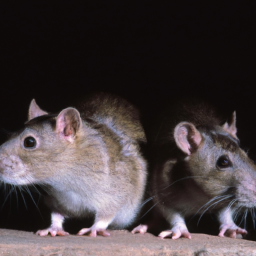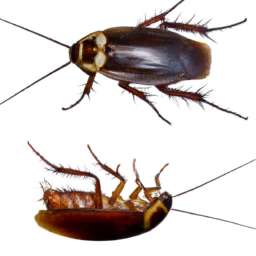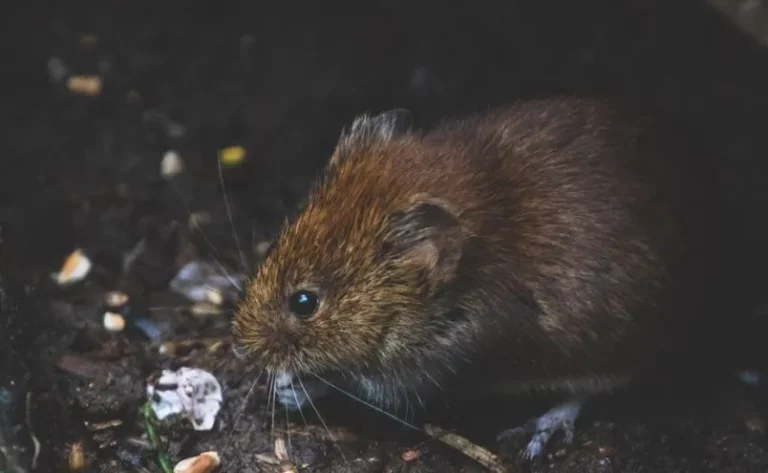Can Rats See in The Dark
Can Rats See in The Dark?
It is a common misconception that rats have the ability to see perfectly in the dark. While rats have improved vision compared to humans, this does not mean that they can completely see in the dark.
Rats’ Night Vision
Rats can see in relatively dim light, as their eyes are adapted for low-light vision. This means that rats are able to see in the twilight and other dull light, but they are not able to see directly in absolute darkness. Beyond this, rats have an additional developed sense of smell and hearing, which they can use to more accurately identify and adjust to their environments when the light is dim.
Rats’ Anatomy
The anatomy of a rat’s eye contributes to its night vision capabilities. The lens, cornea, and extraocular muscles of the rat’s eye have slight improvements that enable the rat to adjust better to low light. Additionally, the tapetum lucidum, a layer of tissue directly behind the retina in the eye, amplifies light, allowing rats to see in poorly lit environments.
Using Other Senses
Rats make up for their lack of exceptional night vision with higher levels of auditory and olfactory abilities. Rats tend to rely more on these senses in the dark, allowing them to identify predators or food sources in the dark.
Overall
Overall, rats can certainly see in the dark, but not to the same degree as humans do during the day. They do have the remarkable ability to adjust to dark environments and use their other senses to navigate more effectively when it’s dark.
Key Takeaways:
-
- Rats can see in low-light conditions, but cannot see in absolute darkness.
-
- The anatomy of a rat’s eye contributes to its night vision capabilities.
-
- Rats make up for their lack of exceptional night vision with higher levels of auditory and olfactory abilities.
-
- Rats can certainly see in the dark, but not to the same degree as humans do during the day.
Rats have long been known to be nocturnal creatures, but do they really see in the dark? Recent studies have revealed that rats actually have exceptional sight, even at night.
Rats are dexterous animals with incredibly sharp reflexes, allowing them to navigate and forage for food during the night. But, how do they see in the dark? It turns out, rats have specialized vision that allows them to navigate in low light or even complete darkness.
Anatomical differences in their eyes allow rats to be more sensitive light-sensing cells called rods. This allows them to detect even faint changes in light levels and react quickly to their environment. In addition, rats can differentiate between multiple light levels and quickly adjust to changing environment.
Rats also have larger retinas and pupils which enables them to capture even more light than humans. These adaptations enable them to differentiate objects in their environment even when they cannot be clearly seen. Additionally, rats also have superior contrast sensitivity compared to humans which allows them to be able to detect shapes and edges of objects even in near darkness.
The ability of rats to see in the dark has been further clarified by an experiment performed by the University of Tokyo. The experimental assets tested the reaction of rats to various objects in the dark, such as toy vehicles, blocks or other similar objects. In the experiment, rats were able to not only detect the objects, but even recognize the shape, providing further evidence of their exceptional nocturnal vision.
Given these results, there is no doubt that rats have an impressive vision even in low light or complete darkness. However, it’s important to note that, although rats can detect shapes and contrast, their vision is limited and they will rely heavily on their other senses, such as smell and touch, to help them navigate in complete darkness.
Overall, rats have demonstrated to have impressive night vision abilities with adaptation that allows them to see in the dark. This ability has enabled them to survive and thrive in their natural environment and provides valuable insight into the unique abilities of these adaptable, nocturnal creatures.
Also Read: Sand fleas
Related: Best Mouse Poison that Kills without Smell
Related: Dust Mites in Bed Symptoms
Related: Can Bed Bugs Live on Wood Furniture?
Related: Top 7 Pictures of Sand Flea Bites!
Related: Chiggers vs Oak Mites – in 5 Important Points Explained!







